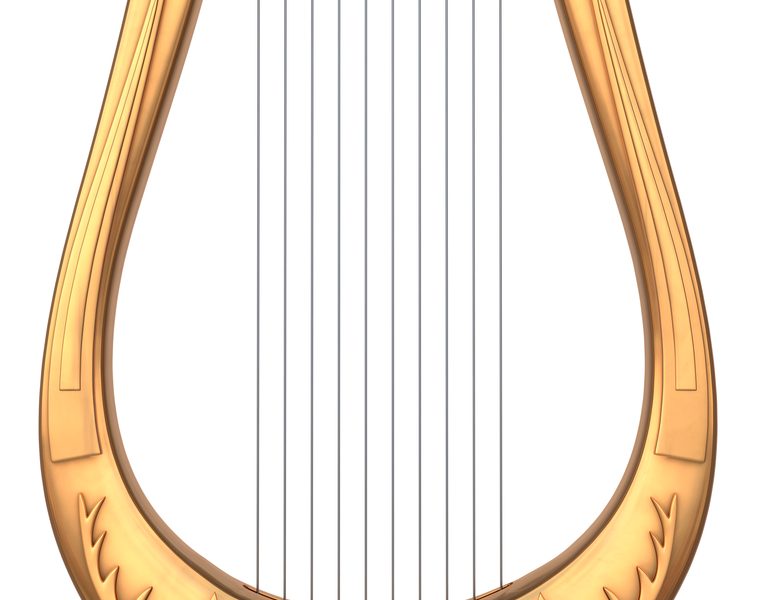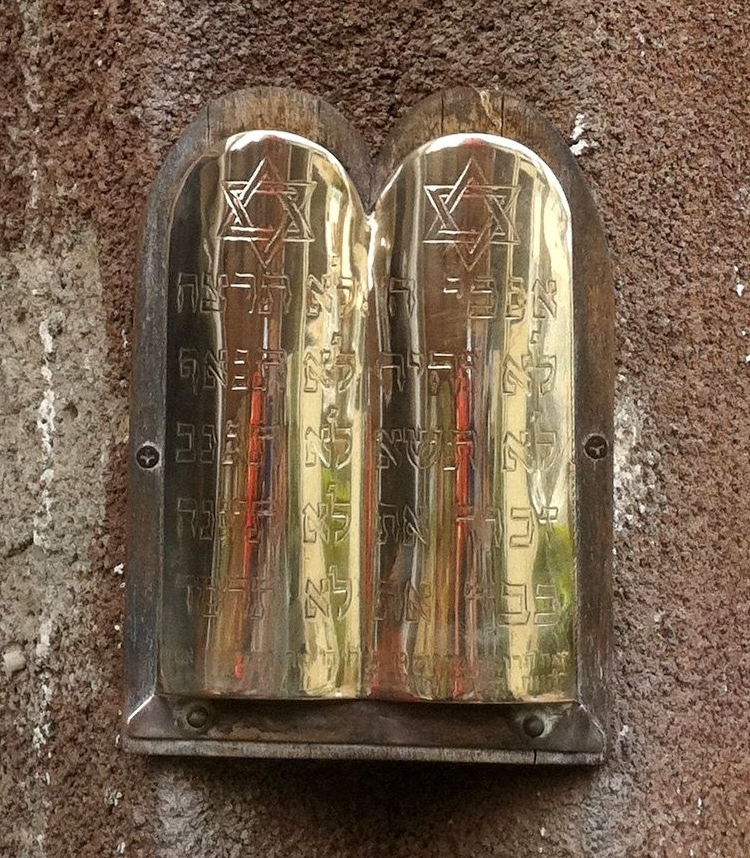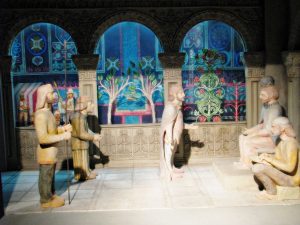
890 AD to 910 AD, Psalm 92: The Karaites.
This site was first built in French (see www.147thgeneration.net). The English translation was mainly done using « google translation ». We have tried to correct the result of this translation to avoid interpretation errors. However, it is likely that there are unsatisfactory translations, do not hesitate to communicate them to us for correction.
(for that click on this paragraph)
Summary
This generation is from the years 890 AD to 910 AD.
According to our count, this generation is the 92nd generation associated with Psalm 92. It is in this Psalm 92 that we therefore find an illustration of the facts of this generation.
To this generation the hitherto undisputed power of the religious leaders of Judaism is shaken. This happens first within the Abbassid empire where the power of the Exilarch is contested by the Jewish notables. When the exilarch died, Anan Ben David unsuccessfully sought his succession. Anan declared himself openly against the Talmud, and founded a new sect who later received the name of Bnei-Mikra or Karaim, or even Karaites, because they only kept to the “Mikra”, the Torah of Moses, and refuted the Talmud.
In fact, the “rabbanites” favoring the oral law had relegated the Torah to the background. So much so that the written law was practically no longer studied except through the Talmud. The competition of Karaism, which recognizes only the written law obliges the “rabbanites” to put the Pentateuch in its proper place.
One of these craftsmen, if not the initiator, is Saadia Gaon. He fights Karaism while also trying to reform the traditional stream. As for the generation that interests us, the first part of Saadia Gaon’s life, this one is interested in the use of Hebrew. He lays the foundation for the golden age of Jewish culture in Spain (Saadia himself did not live in Spain).
This is a new phase of Judaism, where the philosophical confrontation, far from weakening the Jewish faith, allows Judaism to strengthen itself to face the centuries to come.
The psalm associated with this generation pays homage to the Karaites who allowed a revival of Jewish thought and who restored the return to Zion as one of the priorities of Judaism.
Talk
The Exilarch
On the Abbasid side, this generation is that of Al Moutadid (892-902), Al Muktafi (902-908) before the long reign of Al Muqtadir (908-932).
For the Umayyads of Cordova, this generation is that of Abd Allah (888-921).
In the West, this generation marks the beginning of the end of the Carolingian dynasty.
To this generation the hitherto undisputed power of the religious leaders of Judaism is shaken. This happens first within the Abbassid empire where the power of the Exilarch is contested by the Jewish notables. To this questioning is added the attraction of the surrounding cultures. So the West becomes a source of inspiration.
Torah and Talmud
In this environment conducive to thought, the questioning of Rabbanite religious power by the notables is added the older protest of the Karaites. It is accentuated while the power of the Exilarch is weakened:
- All [1] were not satisfied with the domination of the Gaonim. In the second half of the eighth century, a party was formed which refused to consider the Talmud as a second Torah, alleging that the laws of the Talmud did not emanate from God, but from men and that no one was obliged to follow them. At the head of this party came Anan Ben David, from the family of exilarchs. When the exilarch, his relative, had died without leaving a child, Anan had sought his place, but the Gaonim of Soura and Poumbédita did not allow this skeptic to occupy this high position. So Anan declared himself openly against the Talmud, and founded a new sect of new Sadducees, who later received the name of Bnei-Mikra or Karaim, or even Karaites, because they only kept to the « Mikra », the Torah of Moses, and refuted the Talmud. They separated from the people by their particular customs. […] In general, the Karaites kept strictly to the letter, not to the spirit of the Torah. They could not adapt the old biblical laws to everyone’s life. Having separated from the people by their customs, the Karaites founded a closed sect, and afterwards they formed a little people apart. They hated the Talmudists or Rabbinites who obey their rabbis. The Gaonim on their side persecuted the new sect.
In fact, the « rabbanites » favoring the oral law had relegated the Torah to the background. So much so that the written law was practically no longer studied except through the Talmud. The competition of Karaism, which recognizes only the written law obliges the « rabbanites » to put the Pentateuch in its proper place.
Saadia Gaon
One of these craftsmen, if not the initiator, is Saadia Gaon who was born in Egypt in 882. He fights Karaism while also trying to reform the traditional stream. As for the generation that interests us, the first part of Saadia Gaon’s life, this one is interested in the use of Hebrew.
The dictionary made by Saadia remains under the influence of Arab culture:
- This work [2] is not organized according to the alphabetical order of the initials of the words, like our dictionaries, but according to the general practice of the Arabic lexicographers, following the order of the final syllables as an instrument to help the poets find their rhymes.
This Arab influence is also found in the liturgy:
- Arab culture [3] also influenced religious practice at a higher level. The Arabization of intellectual life led to changes in religious practice and ritual, which became evident in the rise of poetry, philosophy (especially neo-Platonism) and pietism (especially in the form of sufism). As in many other areas, the turning point was embodied by Saadia, in particular by her contribution to the liturgy.
Also:
- Saadia [4] made poetic composition in Hebrew an important part of his linguistic program. He wrote many piyoutim, often in an extremely complex style of his own. It seems that he did this in the logic of a perception that made Hebrew liturgical poetry that part of the Jewish literary heritage that corresponded to Arab poetry in the Arab-Islamic tradition.
The Golden Age of Jewish Culture
The work of Saadia [5], pursued by his disciples, lays the foundation for the golden age of Jewish culture in Spain (Saadia himself did not live in Spain), ensuring Saadia a place and a reputation in Eastern and Andalusian Jewish history and thought to which none other than Moses Maimonides could later claim.
It is at this golden age of Jewish culture that Saadia initializes which is evoked by the beginning of the psalm of this generation. Including in its title, because the Jewish liturgy and in particular that of the Shabbat will be greatly enriched throughout this period initiated by Saadia. :

- A song with musical accompaniment for the Sabbath day.
- It is good to give thanks to the Lord, and to sing to Your name, O Most High.
- To declare in the morning Your kindness and Your faith at night.
- Upon a ten-stringed harp and upon a psaltery, with speech upon a harp.
- For You have made me happy O Lord, with Your work; with the work of Your hands I shall exult.
- How great are Your works, O Lord! Your thoughts are very deep.
The proliferation of new ideas and the emergence of internal and external disputes hasten the emergence of this golden age:
- The geopolitical upheavals [6] also favored the emergence of new civilizations or religions: the appearance of Islam, for example, the resumption of the intellectual and spiritual legacy of Hellenism, the development of an important class of free- Thinkers and strong minds all contributed to shake the citadel of Jewish tradition. But she was not the only one to be challenged by this confrontation. Islam itself, with its military victories, now felt the need to push its opponents back onto the doctrinal terrain. The Jews had to follow suit to their neighbors.
This philosophical reflection encourages Jewish thinkers, including Saadia Gaon, to have a new reflection on God and the commandments. These make it possible to achieve a purpose for the Jewish people, and not an immediate reward:
- Gaon Saadia [7] wanted to reconcile faith and reason, religion and philosophy. There must be a God in the universe, he proclaimed – because a creation can not be conceived without a creator. But for men to understand and know how to behave in life, God revealed himself on Mount Sinai and gave Moses the Torah for His people of Israel. Man is endowed with a free will; he can obey or not obey the commandments of the Torah. He who obeys, the righteous, will be rewarded in the future world, and the wicked will be punished. There is a « beyond »: after the death of the body, this is where souls live. But the time will come when all the dead will be resurrected, and it will be the advent of a new world, the world of the Messiah. Thus, the Gaon Saadia was the first of the Talmudists, who created a system of Jewish dogmatics, of religious principles. He founded the religious philosophy of the Middle Ages, already developing in European countries.
Tribute to the Karaites
This is a new phase of Judaism, where the philosophical confrontation, far from weakening the Jewish faith, allows Judaism to strengthen itself to face the centuries to come.
It is this new approach that further mentioned psalm and encourages:

- A boorish man does not know; neither does a fool understand this.
- When the wicked flourish like grass, and all workers of violence blossom, only to be destroyed to eternity.
- But You remain on high forever, O Lord.
- For behold Your enemies, O Lord, for behold Your enemies will perish; all workers of violence will scatter.
- But You have raised my horn like that of a wild ox; to soak me with fresh oil.
- My eye has gazed upon those who stare at me [with envy]; when evildoers rise up against me, my ears hear [them].
- The righteous one flourishes like the palm; as a cedar in Lebanon he grows.
- Planted in the house of the Lord, in the courts of our God they will flourish.
- They will yet grow in old age; fat and fresh will they be.
- To declare that the Lord is upright, my rock in Whom there is no injustice.
We can also see in the end of the psalm a tribute to the Karaites who allowed a revival of Jewish thought and restored the return to Zion as one of the priorities of Judaism:

- The Karaite doctrine [8] strongly emphasizes the obligation of the Jew to live in Eretz-Israel. To live in Jerusalem, to pray at her doors, to submit to severe practices of purification – so many concrete, immediate measures, intended to hasten the Advent, and without which it is vain to discount the Redemption. Hence a lively, incessant propaganda aimed at promoting the Return to Zion. Hence also the will of the sectaries not to be content to preach the good word, but to give substance to their ideas. So the « roses » of Jerusalem – this is how they call themselves, to distinguish themselves from rabbinic « thorns » – they form from the ninth century to the eleventh century the strongest community in the city, and intellectually the brightest.

[1] Simon Dubnov: « Precis of Jewish history ». Chapter: « Eastern Period » (Frrench: « Précis d’histoire juive ». Chapitre : « Période orientale » (p. 139-140) ).
[2] David Biale: « Cultures of the Jews ». Raymond P. Scheindlin’s Chapter: « Merchants and Intellectuals, Rabbis and Poets / Judeo-Arab Culture in the Golden Age of Islam ». (French: « Les Cultures des Juifs ». Chapitre de Raymond P. Scheindlin : « Marchands et intellectuels, rabbins et poètes / La culture judéo-arabe à l’Age d’or de l’Islam ». (p. 326) ).
[3] David Biale: « Cultures of the Jews ». Raymond P. Scheindlin’s Chapter: « Merchants and Intellectuals, Rabbis and Poets / Judeo-Arab Culture in the Golden Age of Islam ». (French: « Les Cultures des Juifs ». Chapitre de Raymond P. Scheindlin : « Marchands et intellectuels, rabbins et poètes / La culture judéo-arabe à l’Age d’or de l’Islam ». (p. 332) ).
[4] David Biale: « Cultures of the Jews ». Raymond P. Scheindlin’s Chapter: « Merchants and Intellectuals, Rabbis and Poets / Judeo-Arab Culture in the Golden Age of Islam ». (French: « Les Cultures des Juifs ». Chapitre de Raymond P. Scheindlin : « Marchands et intellectuels, rabbins et poètes / La culture judéo-arabe à l’Age d’or de l’Islam ». (p. 336) ).
[5] According to : Wikipedia
[6] Maurice-Ruben Hayoun : « Les Lumières de Cordoue à Berlin / Une histoire intellectuelle du Judaïsme (1) ». Chapitre : « L’univers talmudique » (p. 123)
[7] Maurice-Ruben Hayoun: « The Enlightenment from Cordoba to Berlin / An intellectual history of Judaism (1) ». Chapter: « The Talmudic Universe » (French: « Précis d’histoire juive ». Chapitre : « Période orientale ». (p. 141) ).
[8] Under the direction of Elie Barnavi: « Universal History of the Jews ». Chapter: « The dissent of the Karaites ». (French: « Histoire Universelle des Juifs ». Chapitre : « La dissidence des Karaïtes ». (p. 89) ).

